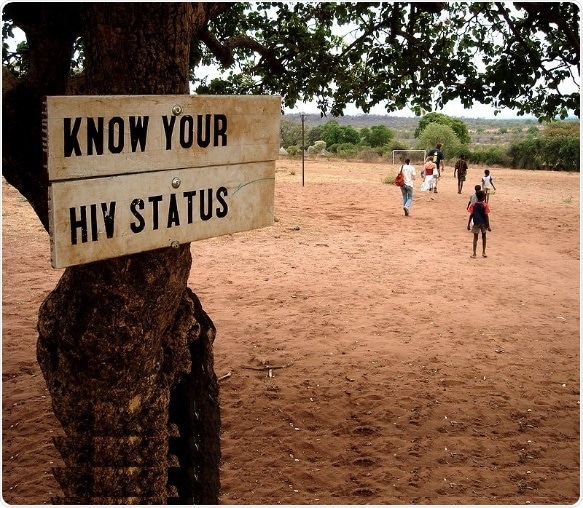May 22 2019
Delivery of antiretroviral HIV treatment via community-based clubs can reduce retention of patients in care, according to a new research study published in the open-access journal PLOS Medicine by Colleen Hanrahan of the Johns Hopkins Bloomberg School of Public Health, Baltimore, Maryland and colleagues.

Credit: London, Flickr
Despite advances in preventing and treating HIV infection, around a million people die from AIDS-related illnesses each year. To improve provision of very effective antiretroviral therapy to patients and thereby delay or prevent progression to disease, researchers are investigating methods of “Differentiated Service Delivery” (DSD) that make treatments available in ways that are more accessible to patients and can reduce issues such as stigma. A key question is how best to retain patients in care, ensuring consistent therapy and monitoring.
Hanrahan and colleagues did a randomized trial in Johannesburg, South Africa to compare retention of HIV patients in community-based adherence clubs with similar clinic-based clubs. The study involved clubs of 25–30 patients meeting in a community venue every other month for counseling, medication pick-up and screening for tuberculosis, as compared with those meeting in a clinic-based venue. Although community-based clubs are intended to be more convenient to patients and reduce pressure on clinics, as judged by the trial’s primary endpoint 52% of patients were lost from community-based care over 2 years, as compared with 43% lost from clinic-based care (adjusted HR 1.38, 95% CI 1.01–1.87, p=0.032). Missing a club session was the most common reason for loss from care. As part of the study, patients lost to care were returned to standard clinic-based care, and health outcomes were similar in the two groups.
In an accompanying Perspective article discussing the research, Elvin Geng and Charles Holmes note that “DSD models are no panacea for complex issues in global health systems, but do represent a strategic pillar of the HIV response likely to grow in impact over time.”
Source:
PLOS
Journal reference:
Hanrahan, C.F. et al. (2019) The impact of community- versus clinic-based adherence clubs on loss from care and viral suppression for antiretroviral therapy patients: Findings from a pragmatic randomized controlled trial in South Africa. PLOS Medicine. doi.org/10.1371/journal.pmed.1002808.